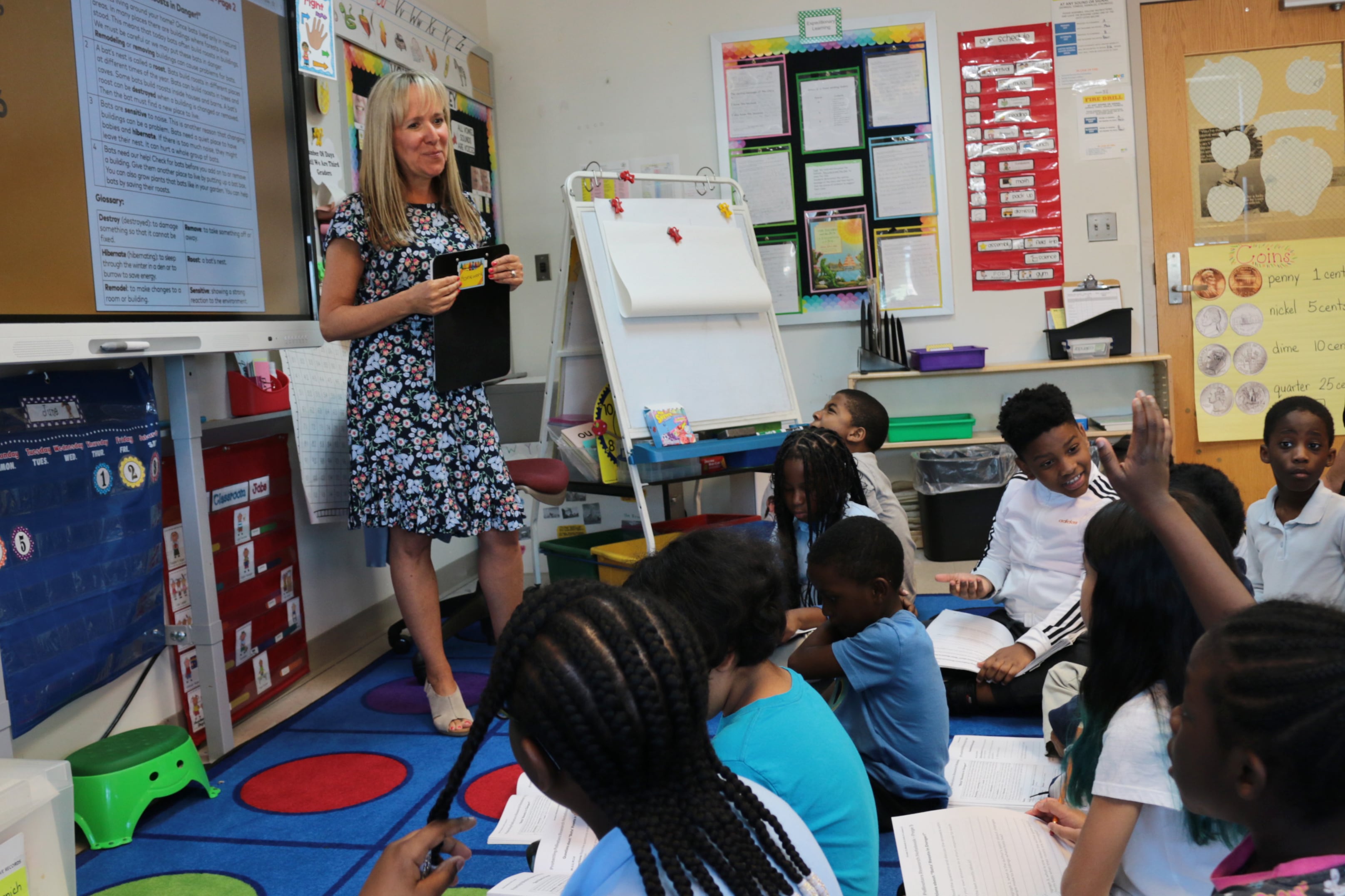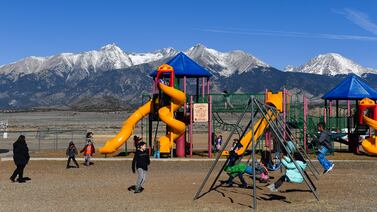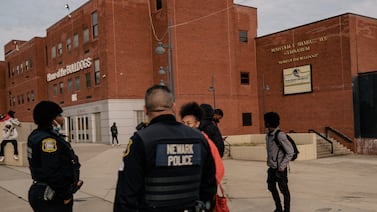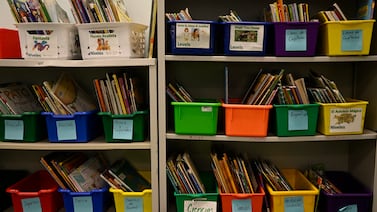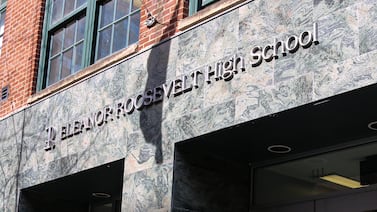Sign up for Chalkbeat New York’s free daily newsletter to keep up with NYC’s public schools.
As New York grapples with a teacher shortage, state education officials are debating additional paths to becoming certified — including options beyond obtaining a master’s degree.
Under current regulations, educators must obtain their master’s degree within five years of entering the classroom. That’s the only way teachers can stay in their jobs — and New York is one of only three states that requires teachers to obtain them in order to retain certification, according to state officials.
The master’s degree requirement can pose a significant financial and time-consuming burden early in a teacher’s career, while research does not necessarily show clear improvement in terms of the quality of teaching, officials said at a Board of Regents meeting earlier this month.
State education officials discussed possible alternative ways of fulfilling the requirement, including obtaining National Board certification, a highly regarded credential from a national teacher-quality group, or completing a set of graduate coursework that totals an equivalent number of hours to a master’s degree program.
But officials emphasized the master’s degree would remain an option.
“Some of the folks who have expressed opposition to this have said, ‘We’re getting rid of the master’s degree,’” Jim Baldwin, a senior policy advisor at the state’s Education Department, said in an interview. “We’re not getting rid of the master’s degree.”
Education officials considered the potential change as one of a set of possible reforms to the teacher certification process, aiming to strengthen and diversify the educator pipeline, streamlining the process of entering the field, and making it more equitable.
Other possible reforms discussed by state officials included expanding certification exam options and reducing barriers for teachers who want to become certified in an additional subject area. They’re also considering creating a pathway for teaching assistants to become certified teachers, streamlining the process for college professors who want to transition into the teacher workforce, and simplifying the process for school administrators seeking certification.
The February meeting involved no formal proposals, and any action by the Regents is likely a ways off. But the discussion comes amid other changes aimed at recruiting more educators to the field, particularly teachers of color. In 2022, the Board of Regents voted to remove the requirement that prospective teachers take the controversial edTPA — a national assessment that some argued acted as a barrier to diversifying and expanding the educator workforce.
“The way that we have the master’s degree requirement positioned in New York does create particular burdens for individuals of color,” Baldwin said, pointing to a 2019 report on teacher diversity. “The importance of students being able to see people who look like them in front of the classroom, in the principal’s office, providing leadership in the school district and the schools — it’s critical in terms of the future of our public schools.”
Moving away from a required master’s degree
Dan Goldhaber, director of the Center for Education Data and Research at the University of Washington and an expert on teacher certification, said he understands the argument for moving away from a master’s degree requirement.
“There’s no research showing a generic master’s degree either makes you better and/or is associated with teachers being better,” he said.
But Goldhaber added that data is complicated by a variety of factors, including that generally the most common master’s degree educators obtain is in educational administration, an area of study that prepares educators to transition into roles in school administration and does not necessarily improve their abilities in the classroom.
Currently, any master’s degree will fulfill New York’s requirement, though a set of credit hours must be completed within particular content areas. State officials also discussed changing the requirement to specifically mandate a degree in pedagogy or the content area in which a teacher is seeking to become certified.
Though some past studies have shown a master’s degree in math or science could predict more effective teachers in those subject areas, Goldhaber noted the research has generally been limited. There’s “better evidence that getting National Board certified is associated with higher levels of teacher effectiveness than getting a master’s degree,” he added.
Still, Goldhaber noted adding flexibility around the requirement might not shift the needle dramatically.
“There’s a very strong incentive for people to get a master’s degree — whether it’s a requirement or not — and that is that you’re on a higher lane on the salary schedule,” he said.
During the February meeting, Regent Frances Wills, who represents counties just north of the city, said she hoped the state could help people understand the alternative pathways would “provide similar rigor” to a master’s degree.
“It will still be costly in the sense that people do have to pay for some of these things,” Wills said. “But it can get to, perhaps, a better, more expansive way … of demonstrating what you can do.”
Addressing a teacher shortage
The discussion came as the state and the country have grappled with a shortage of teachers, as many educators left the profession over the course of the pandemic. In New York, state officials said superintendents have struggled to find enough certified teachers, and teacher preparation programs have seen a steep decline in enrollment.
Across the state, 80% of school districts have at least one staff member teaching a subject without the proper certification. For one-third of school districts, 5% or more of staff members are doing so — a figure that has doubled since 2019, according to state officials.
The city has largely been spared from the effects of the shortage, but it still has seen declines in its pool of educators. The city’s schools will also need to hire an influx of new teachers in the coming years, with more than 10,000 new teachers required in order to comply with a state mandate reducing class sizes, according to estimates.
“We really have a crisis in terms of the supply of teachers — not just currently, but as we look out over the future,” Baldwin said. “We have seen significant drops in the number of individuals who are entering teacher preparation programs in the state.”
He noted the state’s current requirements make it difficult for certified teachers from other states to seek employment in New York, as well as for teachers in the state to transition into teaching new subjects.
Baldwin said the state is looking to reconcile differences between New York’s teacher preparation programs and those in other states, while also reforming the process for teachers to transition into new roles such that they get appropriate exposure to the subject matter without it “bogging them down with duplicative requirements.”
Jeffrey Matteson, a deputy commissioner at the state Education Department, stressed that regardless of any changes, school districts would continue to hire qualified teachers.
“No matter what we’re proposing here as far as certification pathways and professional certification, school districts go through hiring processes, they vet these people, they have to go through a background check, they’re not just put in front of the classroom,” he said. “So this isn’t a blowing up of the system, where a bunch of unqualified people are going to be forced upon school districts.
“This is about getting school districts more options for the people that they can select to put in front of the classroom,” he said.
Julian Shen-Berro is a reporter covering New York City. Contact him at jshen-berro@chalkbeat.org.


